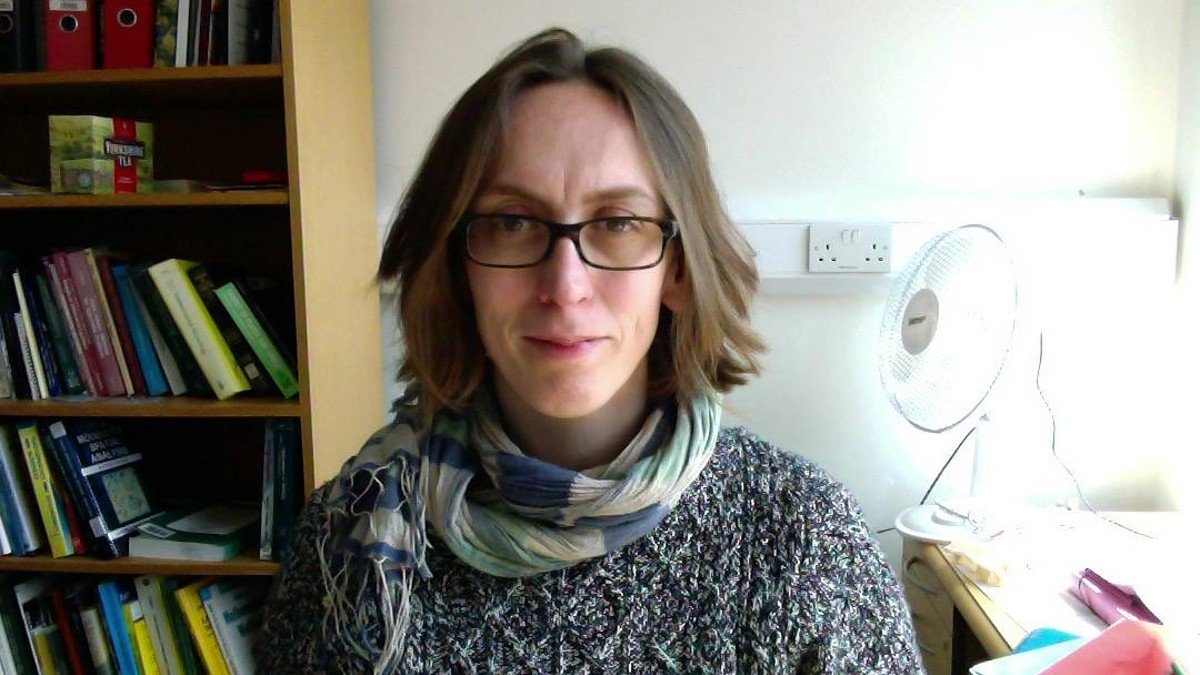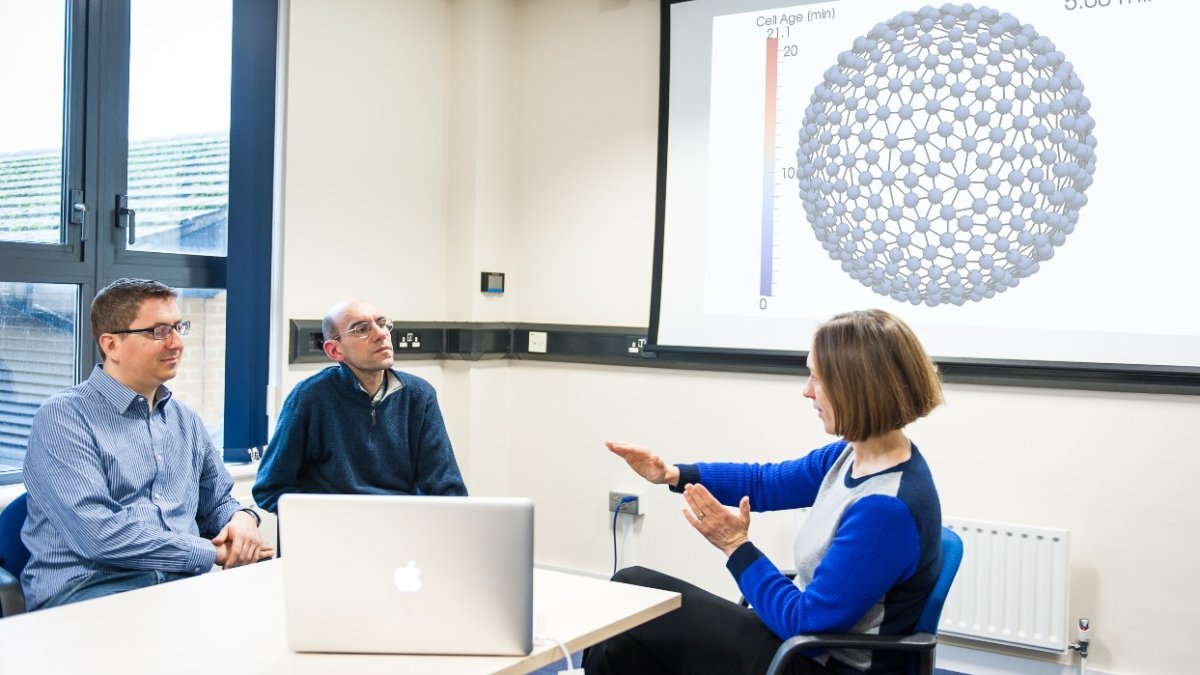Meet the academic: Dr Carina Dunlop
Dr Carina Dunlop uses equations to model cancer treatments and examine cellular behaviour. When not working in our Department of Maths, she’s a fan of board games and the Marvel cinematic universe… and fiercely competitive on the badminton court.

"There was never a moment where a massive arrow pointed to me and a booming voice said, 'You are a mathematician!'” says Carina
What attracted you to maths?
It was always the thing I enjoyed most, and it always made me feel calm and happy doing it. It felt like my space.
I considered doing history at university, but maths seemed like the natural choice and I’ve never stopped enjoying it.
So there wasn’t a Road to Damascus moment for you?
It was a continual fascination. There was never a moment where a massive arrow pointed to me and a booming voice said, “You are a mathematician!” Although it would make life much easier if that mechanism existed.
Where did you study your degree?
As an undergraduate, I studied mathematics at Oxford. It was a broad degree with opportunities to study both pure and applied modules. I stayed at Oxford for my PhD, where I moved to the applied side at the Industrial and Applied Maths Centre.
While there, I had friends working in mathematical biology and that’s the direction I took.
What’s your current area of research?
There are two main streams. The first is cancer modelling and looking at models for drug therapies, including optimal dosing and scheduling. The idea is to develop mathematical equations that tell us how a cancer will grow. Then we can test what we think will happen via a mathematical model. This could help us refine and improve how we treat the disease – or it could throw up something amazing that we didn’t know existed.
What’s the other stream?

"The idea is to develop mathematical equations that tell us how a cancer will grow," says Carina, here discussing research with her colleagues
This involves mechanobiology, which examines how physical forces alter cellular behaviour. There are lots of experiments where biologists can stretch, twist, poke and prod cells. By doing this, we can get them to divide, die, start crawling away in disgust…
I use computer models for stress, force and deformation to predict how these cells will behave under different conditions. Biologists have noticed the phenomena for a long time, but it wasn’t until physicists and mathematicians got involved that we started to model and measure it.
Does your research involve industry?
I have a collaboration with GlaxoSmithKline on drug trial design. At the moment, the mechanobiology is scientific discovery rather than industrial application.
What’s your role as Admissions Tutor involve?
I’m the public face of the Department at open and applicant days. I give prospective students an idea of what we’re about and what they can expect if they come here. I ensure they have time with current students, and arrange Q&A sessions and tours.
What courses do you teach on?
I teach a module on fluid dynamics, which is how we use maths to predict the flow and effects of non-viscous fluids like water. I also teach a module on human physiology. This includes topics such as cancer modelling, which ties in with my research, and DNA modelling. We also examine how maths can predict successful interpersonal relationships.
Maths can predict romantic happiness?!
A brilliant mathematician called Jim Murray pioneered the use of equations for marriage counselling. Collaborating with a group of psychologists, they observed how people influenced one another.
They classified people into different personality types. They then turned these types into functions, plugged these into a system we call interaction equations, and modelled relationships. Some outcomes predicted relationships would take a downward spiral towards mutual hatred, while others predicted the couples would live happily ever after.
Why should people study maths?
You should always study something you love that fascinates you. Otherwise you’re not going to be happy. If you choose to study maths, you should love it.
You’ll also be highly employable because you’re going to develop skills that make you an analytical thinker and a creative problem solver.
Why should people study maths at Surrey?
We have a friendly and supportive Department where we’ll get to know you and invest proper time in you. The staff here also have diverse research interests and that filters through into our teaching. You’ll be taught by people at the forefront of their field who communicate that interest with a passion.
Finally, how do you relax away from work?
I have two small children, so time to relax is at a premium. When those rare occasions happen, I have a thing for board games. We’ve been playing Pandemic Legacy and that was great, even though the theme was a bit too topical.
I’m also a huge fan of Marvel superhero films. I’ll admit I cried after watching Black Widow. It’s essentially a film about sisters and it struck a chord with me.
I like getting out into the countryside and doing as much sport as I can, too. I used to play lots of badminton and I'm keen to get back to it. However, I must admit to a competitive streak once I get on court.
Find out more about studying in our Department of Mathematics.
